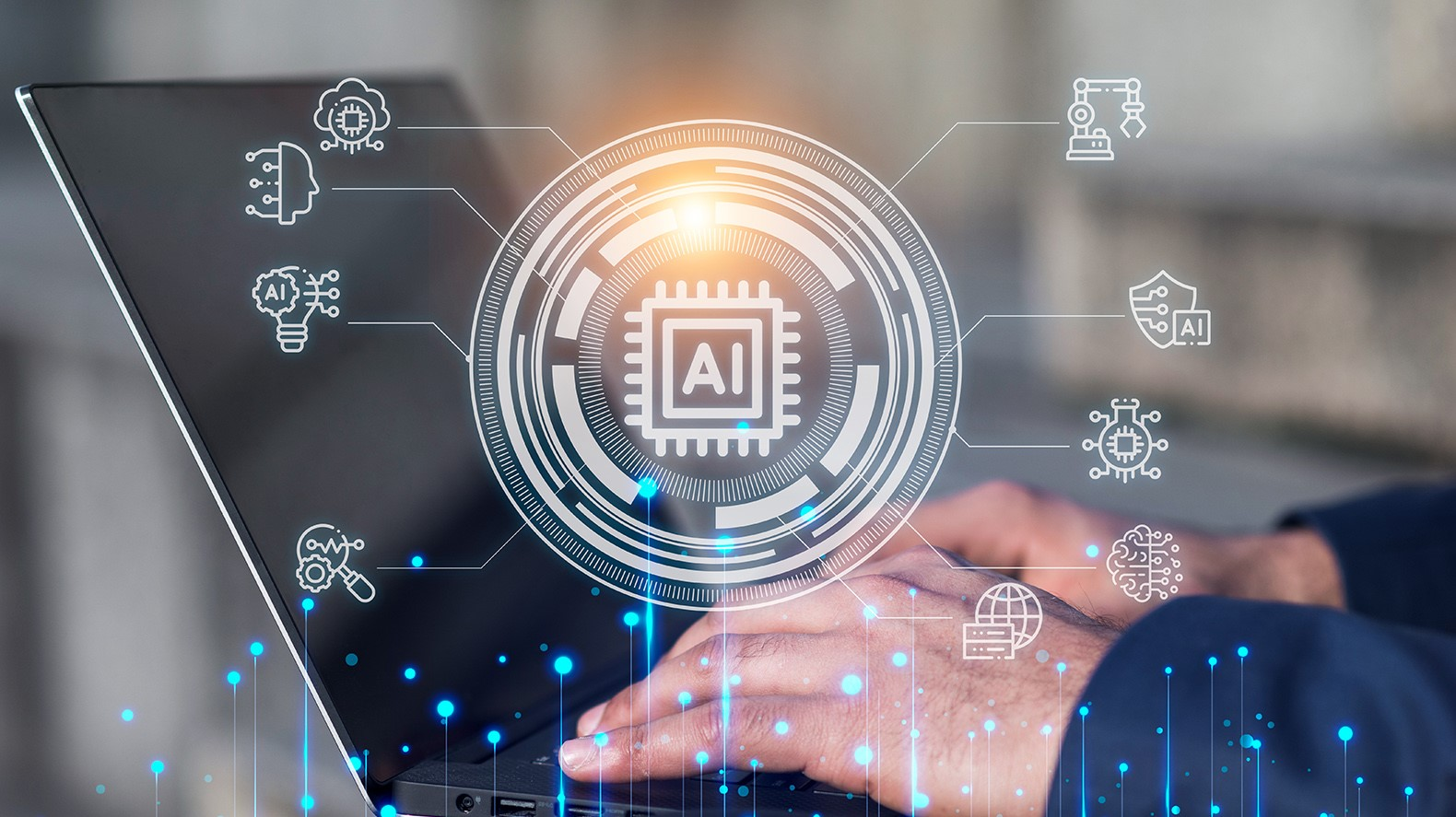How Can DevOps Take Advantage of AI

DevOps has become a vital component in the changing field of IT operations, helping development and operations teams work together seamlessly. Furthermore, the principles of DevOps emphasize automation, continuous integration, and continuous delivery to expedite the software development life cycle. However, the integration of DevOps and Artificial Intelligence (AI) takes this collaboration to a whole new level.
Artificial Intelligence (AI) can aid DevOps teams by assessing large volumes of data, making predictions, and automating laborious procedures. In this blog, we will explore how DevOps can take advantage of AI, including the prominent roles AI plays in the process. We will also delve into case studies from tech giants like Google, Microsoft, Netflix, and Facebook to illustrate the practical implementation of AI in DevOps. Furthermore, we will discuss the significance of AI in the DevOps team structure and identify the essential DevOps operations tools that can be used for continuous monitoring.
How Can a DevOps Team Take Advantage of Artificial Intelligence
DevOps teams can leverage AI in several crucial roles to streamline their operations and improve overall efficiency:
Automated Testing: AI can be used to create intelligent test scripts that adapt to the evolving codebase, identifying potential issues and ensuring continuous integration and delivery are error-free.
Predictive Analytics: Moreover, AI-powered analytics can forecast potential performance issues, helping DevOps teams proactively address them before they impact end-users.
Anomaly Detection: AI can detect anomalies in system logs and network traffic, helping DevOps teams identify security threats or performance issues quickly.
Chatbots for Support: Further, AI-driven chatbots can provide instant support to both internal team members and external customers. It improves consumer happiness and speeds up response times.
Infrastructure Optimization: AI can analyze the resource utilization of servers and other infrastructure components, making recommendations for scaling up or down to optimize costs.
Release Management: Additionally, AI can assist in managing release schedules, evaluating potential risks, and providing recommendations to improve the success rate of software releases.
Continuous Monitoring: Finally, AI can continuously monitor various aspects of DevOps operations, from code repositories to infrastructure, to ensure high availability, reliability, and security.
Case Studies
Let's examine more closely how several major IT companies have included AI in their DevOps procedures.
Google:
Google has been at the forefront of incorporating artificial intelligence into its DevOps operations. They use AI for automated testing, ensuring that their services are highly reliable and robust. Moreover, Google's AI-driven systems can detect issues in real-time and even propose fixes, minimizing downtime and improving user experience.
Microsoft:
Microsoft employs AI for release management. They have developed an AI system that evaluates the readiness of code for deployment and suggests the most suitable time to release new features or updates. This guarantees software quality while simultaneously improving the DevOps pipeline's efficiency.
Netflix:
Netflix relies on AI for predictive analytics to optimize content delivery and enhance user experience. In order to provide tailored content, its recommendation system analyzes user behavior and preferences using AI. In the context of DevOps, this approach minimizes infrastructure overload and ensures seamless streaming.
Facebook:
Facebook utilizes AI for infrastructure optimization. Their AI systems constantly monitor the performance and resource utilization of their vast data centers. This data-driven approach allows Facebook to fine-tune its infrastructure, reducing costs and environmental impact.
The case studies from industry leaders like Google, Microsoft, Netflix, and Facebook provide inspiration and practical insights into what is achievable with AI in DevOps. They demonstrate the concrete advantages that artificial intelligence may provide DevOps teams all over the world.
Impact of AI in DevOps
Apart from the roles mentioned above, AI has a broader impact on DevOps:
ChatOps: ChatOps, which combines chat platforms with DevOps tools and AI-driven bots, allows team members to interact, share information, and execute tasks seamlessly within their chat environment. This method facilitates communication and enhances teamwork.
AI-Powered Insights: To give DevOps teams useful information, AI can evaluate data from a variety of sources, including logs and performance indicators. With the purpose of continual development, these insights assist teams in making data-driven decisions.
Security: Additionally, AI can enhance security in DevOps by detecting vulnerabilities, monitoring suspicious activities, and automating incident response. Given the constantly changing nature of cyber threats in today's world, this is imperative.
DevOps Team Structure Roles And Responsibilities
To fully leverage AI in DevOps, organizations need to consider their team structure. A typical DevOps team is composed of the following roles:
Developers: These are responsible for creating and maintaining the codebase. They work closely with operations teams to ensure a smooth deployment process.
Operations Engineers: These professionals manage infrastructure, networking, and system administration. To make sure the code is delivered and functions properly in production, they collaborate with developers.
QA Engineers: Before deployment, quality assurance experts make sure the program has been extensively tested and is error-free.
Release Managers: Release managers oversee the deployment process, coordinate with various teams, and ensure the successful release of software.
Security Specialists: In the age of cybersecurity threats, security specialists are essential for safeguarding the DevOps pipeline and infrastructure.
AI Engineers/Data Scientists: These individuals develop and maintain AI models, integrating them into the DevOps pipeline to automate tasks and provide valuable insights.
The integration of AI into the DevOps process might require organizations to introduce new roles or adapt existing ones to implement and manage AI-driven solutions effectively.
Prominent DevOps Operations Tools for Continuous Monitoring
To implement continuous monitoring effectively, DevOps teams can utilize various operations tools. Some of the prominent ones include:
Prometheus: An open-source toolkit for alerting and monitoring that is scalable and reliable. It provides a flexible query language and integrates seamlessly with Grafana for data visualization.
Grafana: A well-known open-source monitoring and observability platform. Grafana allows DevOps teams to create interactive and shareable dashboards, making it easy to visualize data from multiple sources.
ELK Stack (Elasticsearch, Logstash, Kibana): These tools are often used for log management and analysis. Elasticsearch is a distributed search and analytics engine, Logstash is used for data collection and transformation, and Kibana provides a user-friendly interface for visualization and reporting.
Splunk: A complete search, monitoring, and analysis platform for machine-generated data. It's a versatile tool for DevOps teams seeking deep insights into their data.
New Relic: A cloud-based platform for monitoring and optimizing application performance. From infrastructure monitoring to application performance management, it provides a broad spectrum of observation options.
Dynatrace: A software intelligence platform that provides real-time, automated monitoring and analytics for cloud and hybrid environments. It offers AI-powered insights for efficient problem resolution.
The Future of AI in DevOps
We should anticipate even more leading-edge DevOps applications as AI technologies continue to progress.
AI-Driven ChatOps: The use of chatbots and conversational AI will become more sophisticated, making it easier for team members to interact with and control their DevOps toolchain using natural language. This will streamline communication and make DevOps more accessible to team members across various skill levels.
AI-Enhanced Predictive Analytics: Further, AI algorithms will evolve to provide even more accurate predictions regarding system performance, potential issues, and customer behavior. This level of accuracy will allow DevOps teams to take preemptive actions, ensuring the highest level of service quality.
AI for Security Automation: As cyber threats continue to proliferate, AI will play an increasingly crucial role in identifying and mitigating security risks. To be specific, AI-driven systems will be able to detect and respond to security incidents in real-time, bolstering the overall cybersecurity posture of DevOps operations.
AI for Resource Allocation: Moreover, in the realm of infrastructure optimization, AI will play a more significant role in determining the most efficient allocation of resources. It will help organizations reduce costs, minimize wastage, and improve resource utilization.
AI-Powered Insights and Recommendations: AI models will become more adept at providing actionable insights and recommendations, helping DevOps teams make data-driven decisions for continuous improvement. These insights can range from performance-tuning suggestions to cost-saving measures.
AI in Continuous Integration and Deployment: AI can be employed to streamline the CI/CD pipeline further. Automated code analysis, deployment risk assessment, and intelligent rollbacks in case of issues are areas where AI can make a substantial difference.
AI in Documentation and Knowledge Management: Finally, AI can be used to automate the documentation process, ensuring that every change, decision, and resolution is logged effectively. This enhances knowledge management and provides valuable historical data.
Challenges and Considerations of AI in DevOps
Although there are many advantages to integrating AI into DevOps, there are drawbacks as well. The following factors should be taken into account by DevOps teams:
Data Quality: Data plays a major role in AI models. It is essential to guarantee data consistency and quality in order for AI to provide reliable predictions and insights.
Security and Privacy: AI systems have access to vast amounts of data, making them a potential target for security breaches. For this reason, strong security measures are necessary to safeguard sensitive data.
Skill Gap: Also, implementing and maintaining AI systems requires expertise. DevOps teams need to invest in training or hiring AI specialists.
Ethical Considerations: AI models need to see ethically responsible utilization. DevOps teams need to make sure that decisions are made fairly and be conscious of any potential biases in AI algorithms.
Integration Challenges: Last but not least, integrating AI tools seamlessly into existing DevOps pipelines can be complex. It requires thorough planning and testing to avoid disruptions.
Conclusion
Artificial Intelligence has become a game-changer in the world of DevOps. Its diverse roles, from automated testing to predictive analytics, offer DevOps teams new ways to streamline their processes, improve efficiency, and enhance user satisfaction. Case studies from industry leaders like Google, Microsoft, Netflix, and Facebook demonstrate the practical application of AI in DevOps.
As DevOps teams continue to evolve and adapt to this technological revolution, it is essential to consider team structure and the incorporation of AI specialists who can develop and maintain AI models. Additionally, leveraging prominent DevOps operations tools for continuous monitoring ensures that AI-driven insights are put to effective use.
The rapidly changing technological landscape of DevOps requires organizations and developers to stay ahead of the curve. DevOps teams that embrace AI are more likely to achieve greater agility, reliability, and efficiency in their operations, ultimately leading to more successful software development and delivery.
Are you ready to use AI to transform your DevOps operations? Take a look at the endless potential of AI in DevOps and start your journey to increased productivity and flexibility right now.
